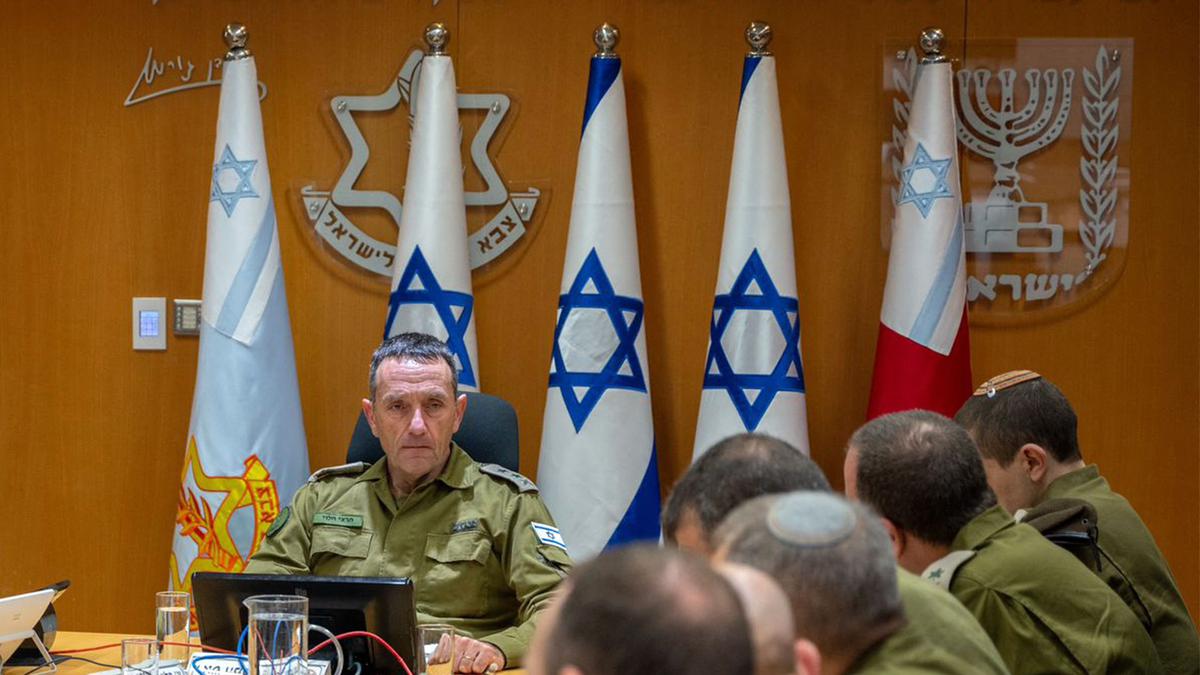Israel will respond to Iran’s weekend missile attack: Military chief
Tue 16 Apr 2024, 12:06:30

Jerusalem: Israel’s military chief said Monday that his country will respond to Iran’s weekend attack, but he did not elaborate on when and how as world leaders urged against retaliation, trying to avoid a spiral of violence in the Middle East. The Iranian attack on Saturday came in response to a suspected Israeli strike two weeks earlier on an Iranian consular building in the Syrian capital of Damascus that killed two Iranian generals. It marked the first time Iran has launched a direct military assault on Israel despite decades of enmity dating back to the country’s 1979 Islamic Revolution.
Iran launched hundreds of drones, ballistic missiles and cruise missiles at Israel in the attack. The Israeli military said that 99% of the drones and missiles were intercepted, by Israel’s own air defenses and warplanes and in coordination with a U.S.-led coalition of partners. Israeli military chief Lt. Gen. Herzi Halevi said Monday that Israel is considering its next steps but that the Iranian strike “will be met with a response.”
Halevi gave no details. The army’s spokesman, Rear Adm. Daniel Hagari, said Israel will respond “at the time that we choose.” Both men spoke at the Nevatim air base in southern Israel, which Hagari said suffered only light damage in the Iranian attack. Prime Minister Benjamin Netanyahu has been huddling with top officials to discuss a possible response. For a second straight day, the government made no
announcements on any decisions.
announcements on any decisions.
In a conversation with U.S. House Majority Leader Steve Scalise, Netanyahu said that “Israel will do whatever is required to defend itself,” the prime minister’s office announced. While Israeli leaders have hinted at retaliation, the government is under heavy international pressure not to further escalate the conflict — especially after the Iranian strike caused such little damage. The U.S. has urged Israel to show restraint as it seeks to build a broad diplomatic response.
British Prime Minister Rishi Sunak said “all sides must show restraint” to avoid a rising spiral of violence in the Middle East. French President Emmanuel Macron said Paris will try to “convince Israel that we must not respond by escalating.” In Washington, U.S. National Security Council spokesman John Kirby declined to say Monday whether the U.S. had been or expects to be briefed on any Israeli response plans.
“We will let the Israelis speak to that,” he said. “We are not involved in their decision-making process about a potential response,” Kirby said. U.S. Secretary of State Antony Blinken said the U.S. doesn’t seek escalation but said it would continue to support Israel’s security. He pledged to step up the diplomatic efforts against Iran. “Strength and wisdom need to be different sides of the same coin,” he said.
No Comments For This Post, Be first to write a Comment.
Most viewed from International
Most viewed from World
AIMIM News
Latest Urdu News
Most Viewed
May 26, 2020
Do you think Canada-India relations will improve under New PM Mark Carney?
Latest Videos View All
Like Us
Home
About Us
Advertise With Us
All Polls
Epaper Archives
Privacy Policy
Contact Us
Download Etemaad App
© 2025 Etemaad Daily News, All Rights Reserved.



.jpg)






.jpg)
.jpg)








.jpg)
.jpg)
.jpg)
.jpg)
.jpg)

















